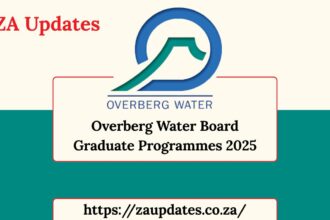Cape Town Cutting Electricity Application Times. Cape Town has taken a significant step towards modernizing its energy sector by launching an online electricity services application platform. This initiative is designed to streamline the process, reducing waiting times and making it more convenient for residents and businesses to apply for essential energy services.
New Era of Digital Energy Services
The new Energy Services Application Portal enables users to apply for various electricity-related services, such as:
- New electricity supply connections
- Additional electricity meters
- Replacement of existing credit meters with prepaid meters
- Replacement of damaged meters
Residents can make payments for these services through multiple channels, including EFT, EasyPay, City walk-in centres, participating retail stores, or via cash, debit, or credit card.
James Vos, Cape Town’s Mayoral Committee Member (MMC) for Economic Growth, highlighted that the city previously launched an online application platform for solar PV installations in 2024, which significantly cut down processing times. Encouraged by its success, the city has now expanded its digital offerings to include broader electricity service applications.
Boosting Efficiency and Economic Growth
The introduction of the new platform aligns with the city’s vision of a modern, efficient, and future-ready energy utility. Xanthea Limberg, Cape Town’s MMC for Energy, emphasized that the portal’s goal is to enhance accessibility and transparency while reducing bureaucratic hurdles.
Vos further explained that the move is part of a larger strategy to increase economic growth by eliminating red tape, which has historically made it difficult to conduct business efficiently in the city.
“For years, applying for new or modified electricity connections was a laborious, paper-intensive process that often led to extended waiting periods,” Vos noted. “By embracing digital innovation, we are not only improving customer service but also ensuring that energy service connections are approved in record time.”
A Key Component of Cape Town’s Ease of Doing Business Initiative
The new Energy Services Application Portal forms part of Cape Town’s broader Ease of Doing Business (EODB) Index, an initiative launched in 2023 aimed at making Cape Town the most business-friendly city in Africa.
Cape Town’s Mayor Geordin Hill-Lewis stated that this initiative is already showing remarkable progress. As part of the EODB strategy, the city has:
- Reduced wayleave processing times from one month to just eight days
- Cut water connection processing times by 45%
- More than halved clearance certificate approval times for property sales
This digitisation drive also extends to solar PV installations, enabling households and businesses to seamlessly apply, track their applications, and receive approvals in a shorter timeframe.
“If you’re an installer, property owner, or service provider involved in solar PV installations, your first step is to register on e-Services and activate the ‘Energy Services’ tile,” explained the City of Cape Town (CoCT). “This will grant you access to the online application portal, where you can easily authorise your solar PV system.”
Cash-for-Power Programme and Regulatory Challenges
This initiative comes hot on the heels of Cape Town’s Cash-for-Power Programme, which allows households and businesses to sell excess electricity back to the municipal grid in exchange for cash. However, concerns have been raised regarding the sustainability of this programme following the National Energy Regulator of South Africa’s (Nersa) new Net-Billing Rules.
Under the updated Compensation and Billing rules approved on 17 December 2024, Nersa mandates that:
- Energy exported to licensed distributors’ networks cannot be paid for in cash.
- Net-billing credits can only be used to offset varbiable energy charges, not fixed, basic, or demand charges.
- Credits are restricted to the relevant monthly billing period and cannot extend into a new financial year.
This presents a challenge for Cape Town’s current Cash-for-Power programme, as it directly contradicts the city’s approach of paying users cash for surplus electricity. If the Nersa regulations are strictly enforced, households and businesses may no longer be able to receive direct cash payments for excess power generation. Instead, credits could only be used to offset future electricity costs within a single financial year.
Cape Town’s Commitment to a Future-Ready Energy Landscape
Despite these regulatory hurdles, Cape Town remains committed to its goal of creating a resilient, sustainable, and customer-friendly energy infrastructure. By digitising and streamlining electricity applications, the city is not only improving service delivery but also reinforcing its status as a leader in energy innovation within South Africa.










